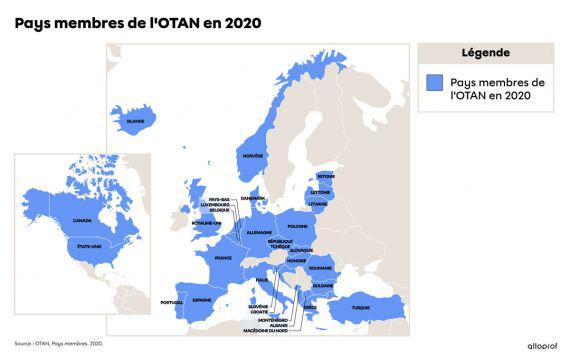The Kremlin wants to restrict the arrival of citizens of "hostile states" on its territory.
Publié le 29 marsNicolas Bérubé La PresseThe Kremlin works to set up barriers aimed at restricting the entry of citizens of "hostile states", leaving the threat of a new iron curtain in eastern Europe hovering.
"A presidential decree will introduce a certain number of restrictions on entry into the territory of Russia," said Sergei Lavrov, Russian Minister for Foreign Affairs, in a speech broadcast by the public television channel Rossiya-24 Monday on Monday.
For Michel Fortemann, honorary professor in the Department of Political Science at the University of Montreal and researcher at the Center for International Studies and Research (CERIUM), the gap between Russia and the Western world risks widening more, a phenomenon thatWe do not yet measure the magnitude or the long -term consequences.
"The Western world now considers Russia as a pariah state," he said.
It's worse than during the Cold War, because even at that time, there was a dialogue in several areas, there were strategic negotiations, we signed treaties ... Now we don't talk, we insult each other.
Michel Fortemann, researcher at the Center for International Studies and Research at the University of Montreal

Both politically and media, Russia and the West live in two impermeable bubbles, he illustrates."These are two visions of things that are completely incompatible.It is a "more" cold war that looks.Nothing indicates a softening of the Russian position at the moment.»»
A reality which is added to geopolitical tensions between China and the West, and which could be difficult to manage for the United States, wrote Monday in Foreign Policy Mathew Burrows, director of the SCOWCROFT strategic initiative at the group ofExperts Atlantic Council.
« Une nouvelle guerre froide sur deux fronts entraînerait des dépenses militaires beaucoup plus élevées, une grande incertitude pesant sur l’économie mondiale et un détournement de l’objectif fondamental de l’administration Biden, à savoir la reconstruction des États-Unis»», a-t-il écrit.
Moscow declarations also react in neighboring countries.On Monday, a senior Kazakhstan government official expressed concern about the latest Kremlin orientations.
Le journal allemand Die Welt a cité Roman Vassilenko, vice-ministre des Affaires étrangères du Kazakhstan, qui a déclaré que son pays ne souhaitait pas se trouver du mauvais côté d’un nouveau « rideau de fer»», expression qui désignait la démarcation entre l’Europe de l’Est et l’Europe de l’Ouest pendant la guerre froide, symbolisée notamment par le mur de Berlin, qui a divisé la capitale allemande pendant près de 35 ans.
Luca Sollai, lecturer in the History Department of the University of Montreal, believes that a return to a certain form of separation between Russia and the neighboring countries is inevitable.
It may not be a specific line as in the era of the Cold War, but there will be states which will have to be neutral, or which will have to adopt the policy of the Kremlin.We will see Russia which will close on itself.
Luca Sollai, lecturer in the History Department of the University of Montreal
Direct effect of the invasion, NATO has already announced its intention to strengthen its military presence by sending ships, planes and additional troops in the east and south-east of Europe."The military presence will be increased, it is clear.We have just entered a new era.»»
The last Russian independent newspaper suspends its activities
Novaïa Gazeta, seen as the last independent media in Russia, and whose editor -in -chief won the Nobel Peace Prize last year, announced on Monday that he suspended his publication until the end of the military actionFrom Moscow to Ukraine. « C’est une décision terrible et difficile»», a déclaré le rédacteur en chef Dmitry Muratov, selon l’Agence France-Presse.The newspaper said it made this choice after receiving two warnings from the government organization which regulates the media industry in Russia, and which has the power to withdraw the operating permit orA TV station. Novaïa Gazeta avait récemment publié des reportages non censurés sur la guerre en Ukraine et décrié « l’avalanche de propagande»» dans les médias d’État russes.Since 2000, six of the Novaïa Gazeta journalists and collaborators have been killed in Russia as part of their work, including investigative journalist Anna Politkovskaya, Critique of Vladimir Putin. « Les derniers médias indépendants établis en Russie se sont tus»», a déclaré sur Twitter lundi Steve Rosenberg, rédacteur en chef pour la Russie à BBC News.








